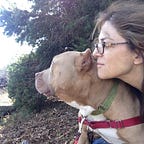Sustaining the Gaze Towards Interdependence (Part 2)
A CORE CHALLENGE.
For many, imagining an interdependent world requires a staggering shift of perception. To even be willing to consider this paradigm shift, a shift in what one considers to be self also needs to take place. How do we understand what our self is? And how does the self develop?
In this video (HERE), futurist Jason Silva illustrates how our sense of self emerges from feedback loops with our environment.
In her book World As Lover, World As Self (1992) Joanna Macy wrote:
“The way we define and delimit the self is arbitrary. We can place it between our ears and have it looking out from our eyes, or we can widen it to include the air we breathe, or, at other moments, we can cast its boundaries farther to include the oxygen-giving trees and plankton, our external lungs, and beyond them the web of life in which they are sustained.”
The psychologist James Kepner says it is only in relationship that the self exists at all.
Traditional wisdom teaches we each have innate and unmediated access to deepening consciousness. And that it is our birthright to experience ourselves as an intrinsic part of the web of life. Applying this knowledge to everyday decisions, however, seems to require ego development.
Ego development stages are increasingly discerning and integrated ways of making sense of life (elaborated on in Part 4). The ego is the sense of “I”, so contrary to popular belief, the ego is not something we are supposed to try to get rid of. Jonathan Mead wrote Transcending and Including the Ego:
“Your ego is what gives you the feeling of an individual identity, separate from everything else… Transcending the ego does not mean waging a war against the ego. It means that we move to a higher context of self and include our individual self as well. Egolessness does not mean the absence of a functional self, it means one is no longer exclusively identified with that self.”
Interdependence is not the absence of independence, it means one is no longer concerned exclusively with maintaining the separateness inherent in independence. Paradoxically, in order to see beyond a limited view of the self and discover one’s innate sovereignty, it seems we must do so from within the matrix of “good-enough” human relationships.
Ego development is related to overall fulfillment in life, but neither success nor failure within the system and standards of capitalism are correlations of ego development. Rather, it is the ways we understand and go about fulfilling our needs that correlates with our ego’s stage of development. We become independent as we learn to take care of our self, and interdependent the more we recognize we are social creatures that both give to and receive from others for our well-being, comfort, and survival. Here Desmond Tutu expresses one aspect of humanity’s innate interdependence:
“A person is a person through other persons… None of us comes into the world fully formed. We would not know how to think, or walk, or speak, or behave as human beings unless we learned it from other human beings. We need other human beings in order to be human. I am because other people are.”
It is possible our survival as a species depends upon how quickly we each discover the boundless implications of this truth.
Tragically, we are ensnared in a harrowing bind. On the one hand, as Dieter Duhm wrote in The Social Matrix, “A revolution that has not occurred inside cannot succeed on the outside.” On the other hand, it can be impossible to attend to self actualization when physical survival is at stake. With hunger, starvation, homelessness, uprootedness, displacement, social stigmatization, poverty, any kind of ongoing conditions of external strife, it’s hard to just pull yourself up by your bootstraps — whether financial, emotional or psychological — when you don’t have any, or, when someone is standing on them.
Therefore it seems the surest way to dissolve these binds and set the stage for interdependence is for each of us to do what we can to co-create the conditions for everyone’s ego development (see Parts 3 and 4). Because the more people can engage in ego development, the more ready we will be to collectively implement new systems for co-existing, systems that work for every being and are not subjected to the gross limitations (greed and control) of either capitalism or socialism.
The extraordinary frontier of global human interdependence beckons with the greatest and most fulfilling paradox of all: a world that unconditionally respects and supports each individual’s innate sovereignty, and each individual’s sovereignty is unified with the entire web of life.
For 6 ways the human nervous system prevents interdependence, go to Part 3.
For 5 habits to practice to strengthen the ego, see Part 4
For a rough sketch of the Ultimate Gordian Knot, see Part 1
About Marenka Cerny: www.somatic-psychotherapy.org
If you like what you read, you could help me out by taking a second to click on the green heart below. Your support makes a difference.
